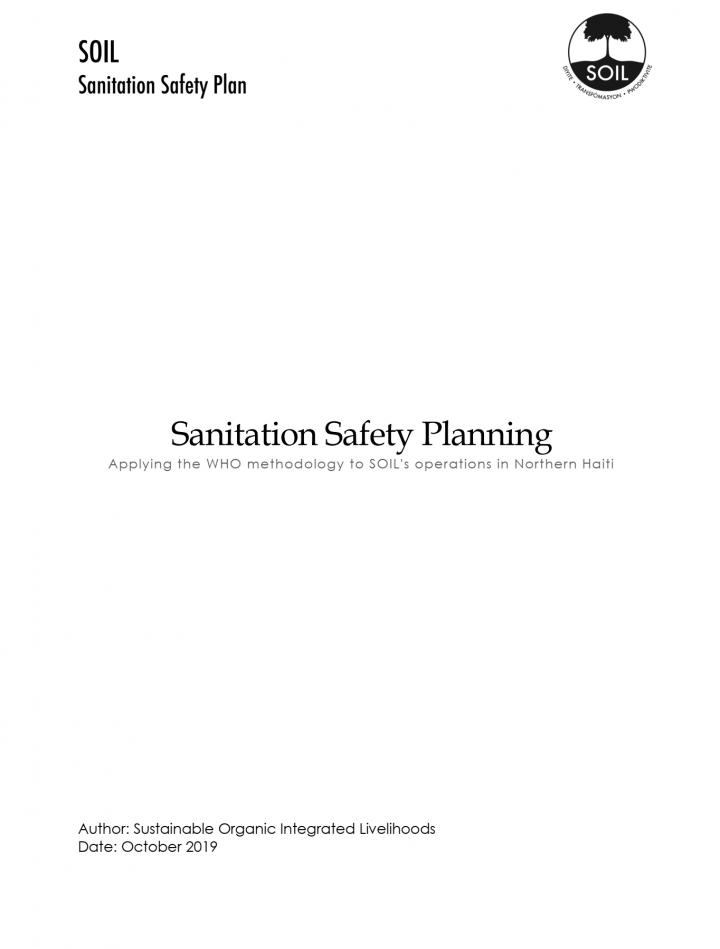Sanitation Safety Planning - Applying the WHO methodology to SOIL's operations in Northern Haiti
Sustainable Organic Integrated Livelihoods (2019)

Published in: 2019
Pages: 56
Publisher:
Sustainable Organic Integrated Livelihoods
Author:
Sustainable Organic Integrated Livelihoods
Uploaded by:
SuSanA secretariat
Partner profile:
common upload
1021 Views
11 Downloads
Over the years, SOIL has developed a model to provide a safely managed sanitation service to densely populated communities in Haiti, using containerbased sanitation. The objective of such an intervention is to reduce the risks to public health and the environment that unsafe sanitation practices create, and risk-based assessment methods such as Sanitation Safety Planning are a valuable tool to help evaluate the impact of SOIL's service, and also improve operations to mitigate risks as much as possible within the existing context. For this reason, the SOIL team was trained by the World Health Organization on the methodology of Sanitation Safety Planning, which was then implemented in SOIL's Northern Haiti operations.
SOIL worked in partnership with government representatives from the Department of Sanitation under the Ministry of Public Works, the Ministry of Public Health and the Ministry of the Environment to accomplish the following components of the Sanitation Safety Plan:
o Define clear objectives and system boundaries
o Break down operations into steps that can more easily be analyzed for potential risks.
o Identify and evaluate the risks to public health and the environment that exist in the current operations, and rank them based on probability and severity.
o Create a mitigation plan, that targets in priority the highest-ranking risks, the objective being to set up interventions, whether behavioral or through infrastructure development.
o Develop a calendar for mitigation solutions during the up-coming year, before the next yearly review that will aim to evaluate the impact of those mitigation measures and update the risk evaluation accordingly.
In SOIL’s case, most mitigation measures proposed are behavioral and will require little to no investment. Once the measures are implemented, they can be evaluated periodically to ensure the objectives are met and the plan is still up to date.
Bibliographic information
Sustainable Organic Integrated Livelihoods (2019). Sanitation Safety Planning - Applying the WHO methodology to SOIL's operations in Northern Haiti. Sustainable Organic Integrated Livelihoods
Filter tags
English Guidelines and manuals Import to Sanitation Workers Platform Latin America & Caribbean















